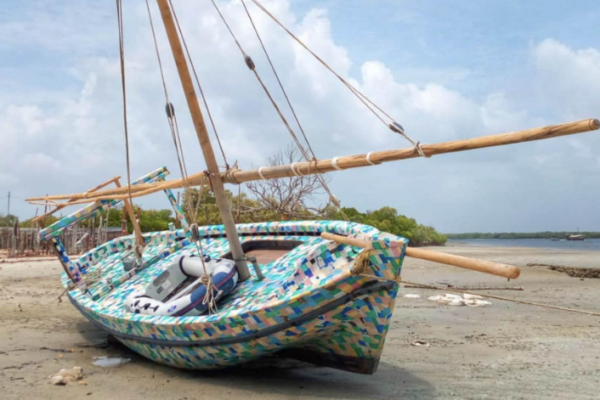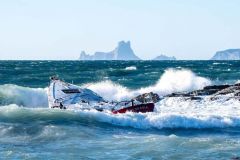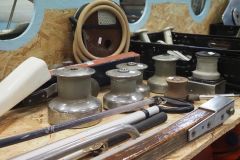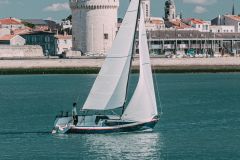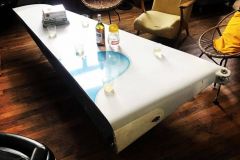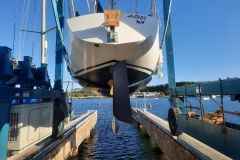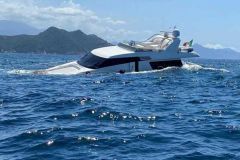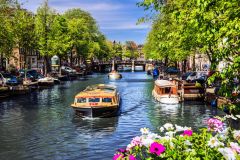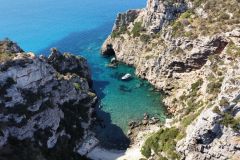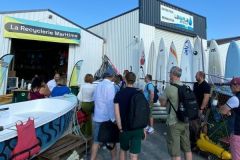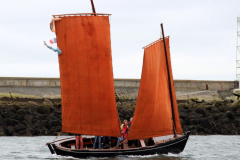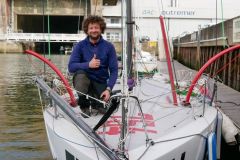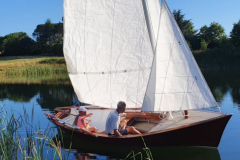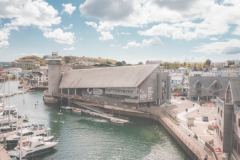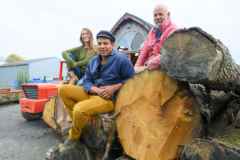Driven by an essential question: " how we can put an end to plastic pollution in the oceans quickly, permanently and as cost-effectively as possible ?", the Flipflopi Project is committed to eliminating single-use plastics and establishing a circular economy for all other types of plastic in East Africa. Through the construction of the recycled plastic dhow Flipflopi Ndogo and subsequent expeditions, the organization has discovered how innovation can catalyze significant change, integrating the various aspects needed to transform the entire value chain.
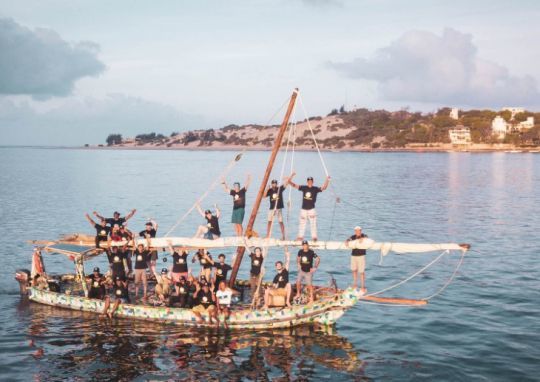
Alarming coastal pollution
The idea of creating the Flipflopi Project germinated in Ben Morison's mind in 2015, when he was struck by the massive presence of plastic waste, particularly flip-flops, soiling the African beaches he loves so much. Convinced that building a boat from this plastic debris would be a way of celebrating the age-old traditional craft of dhow building, a mainstay of Swahili culture. He also wanted to convey a positive message about the need for radical change.
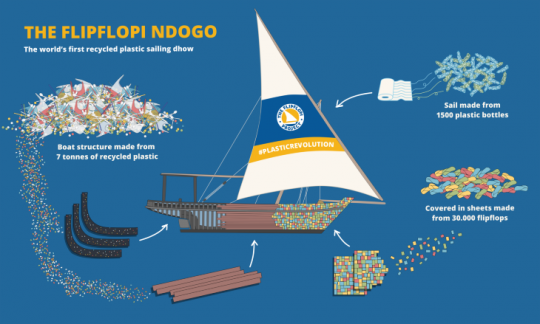
In 2022, the award of the SMEP grant from the CDEF to address the challenges of marine ecosystem health marks a turning point for the Group Flipflopi Projec t. A program operating on the island of Lamu, off the coast of Kenya, combines indigenous boatbuilding know-how with modern technologies for the sustainable management of plastic waste.
How do you build a boat from plastic garbage?
In collaboration with Ali Skanda, renowned Lamu dhow builder, Dipesh Pabari, campaigner against plastic pollution, and Leonard Schurg, engineer, the Flipflopi Project led the construction of a sailing dhow made entirely from recycled plastic in 2016. The idea is to use traditional boat-building techniques in a deliberately low-tech environment, using waste materials collected on Kenyan beaches.
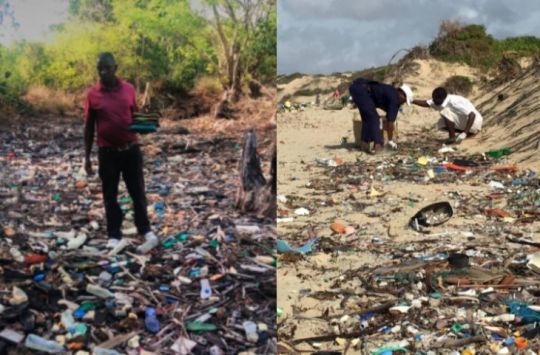
The Flipflopi Project then collaborated with manufacturers in Nairobi, experienced in the production of building materials.
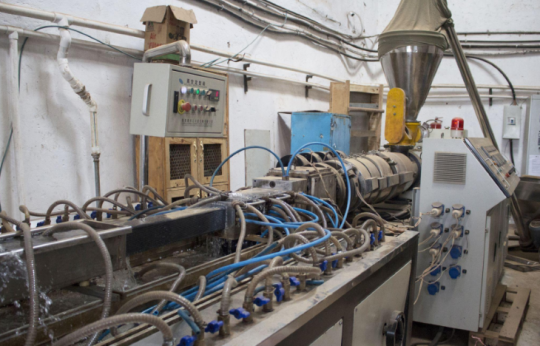
Ten tons of plastic waste, all collected on the Kenyan coast, are melted, shaped and sculpted by the team, just as they would wood.
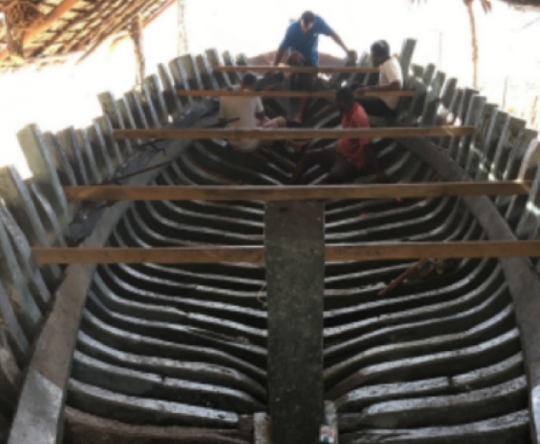
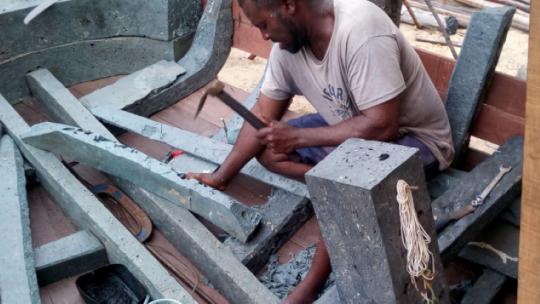
The keel, frames and other structural elements are all made from recycled plastic, including bottles and bags, while the hull and deck are entirely covered in reused flip-flops.
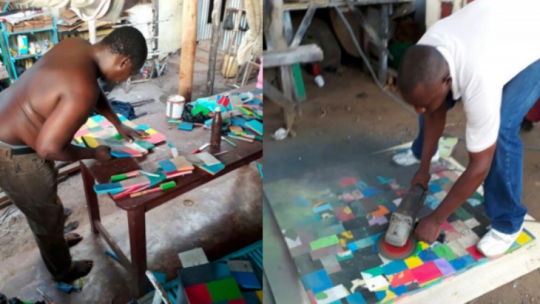
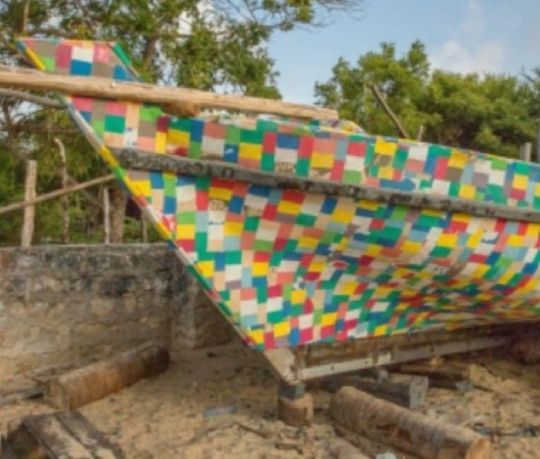
Despite the unusual materials, the boat is taking shape thanks to the skills of local craftsmen, using traditional dhow-building methods. To seal the gaps between the planks, it was decided to fill them with cotton, then apply "simsim" (sesame) oil and Bondex.
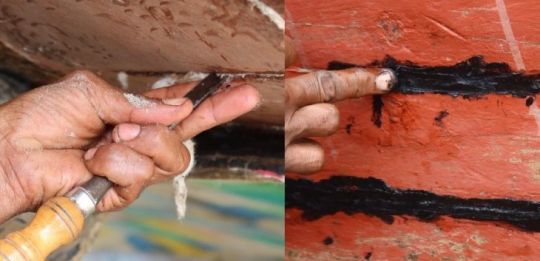
Measuring 10 meters long and weighing around 7 tons, Flipflopi Ndogo is a considerable achievement on the part of Ali Skanda and his team of boat builders.
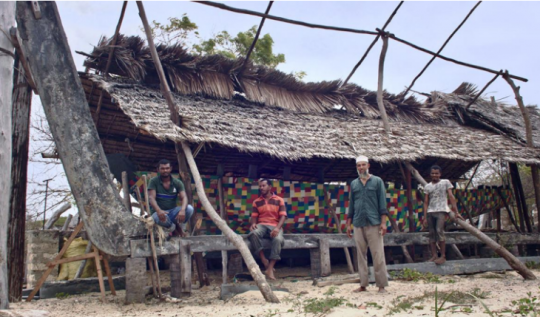
The boat is launched in Lamu in September 2018, at the Ali shipyard, after 2 years of construction. It is clad in 30,000 flip-flops, the usual footwear of 3 billion people.
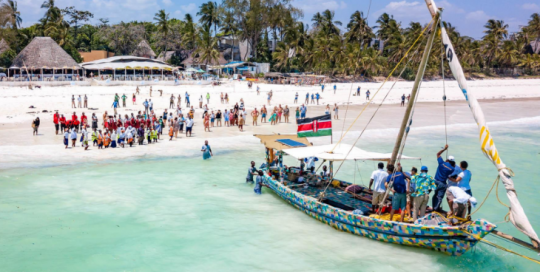
Navigate and get your message across
In 2019, an expedition in partnership with UN Environment's Clean Seas initiative saw the Flipflopi Ndogo sail around 310 miles from Lamu, Kenya, to Zanzibar, Tanzania, and back. Even more ambitious, the 2021 expedition spanned four weeks, covering some 621 miles around Lake Victoria. This time, even the sails were made from thousands of recycled plastic bottles. Home to over 40 million people living in 3 African countries, Lake Victoria is one of the world's most devastated ecosystems. These sailings have proved effective in raising awareness among the populations of East Africa and encouraging sustainable alternatives to single-use plastics.
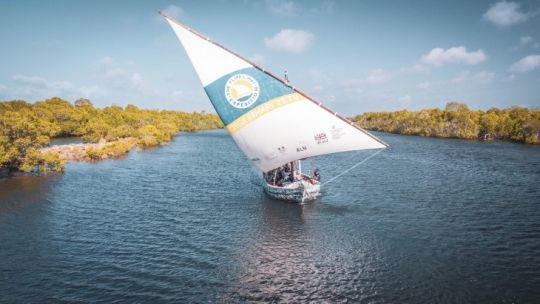
Across East Africa, countries were actively adopting laws to combat plastic pollution. Rwanda had already announced a ban on all single-use plastics. Two months after the expedition, Kenya banned all single-use plastics in national parks, and a national ban on plastic bags was adopted in Tanzania. Flipflopi and its partners are committed to long-term progress by drafting a bill to be tabled in the East African Parliament to enforce the ban on the unnecessary manufacture, import, use and sale of single-use plastics. During the first expedition, 39 companies in the local tourism industry signed plastic commitments to ban or reduce single-use plastics. The first plastic materials recovery and recycling center was set up in Lamu: over 200,000 kg of plastic waste was collected in less than two years, which would otherwise be destined for the oceans. What's more, in 2022-2023, training in the circular economy and plastic boatbuilding was officially integrated into Lamu Polytechnic. 29 students completed the 3-month certified course, including Kenya's first female boatbuilders.
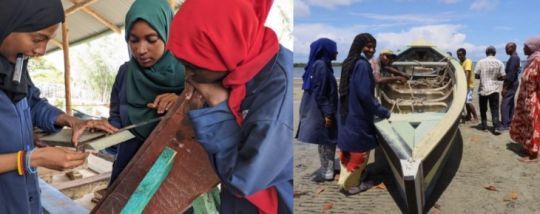
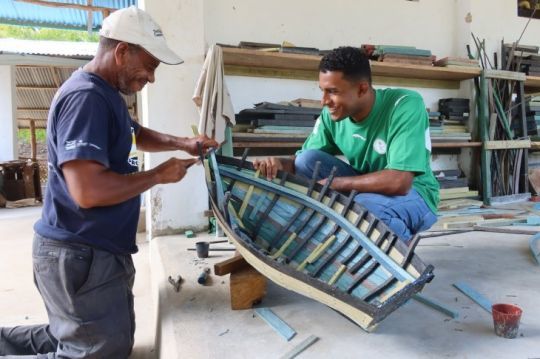
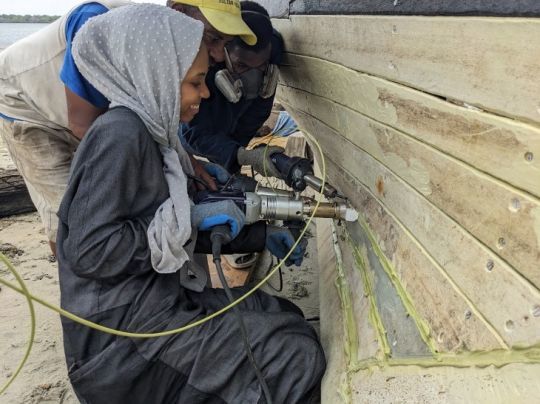
What next?
After a year of refurbishment for improvements, Flipflopi Ndogo was returned to the water on March 28, 2024. Wherever she went, Flipflopi was a constant symbol of hope, inspiring positive change! The Flipflopi Project never doubted: '' Flipflopi Ndogo has inspired people in Africa and around the world to become more aware of one of the most pressing environmental issues we face ''.
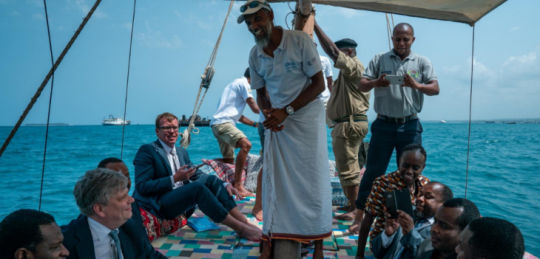
Since 2023, in the same Lamu shipyard that gave birth to Flipflopi Ndogo, the fourth dhow-type sailboat, 100% recycled plastic and three times larger than Flipflopi Ndogo, has been undergoing research and development.
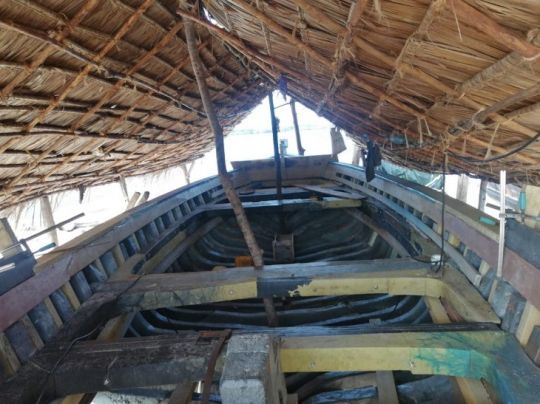
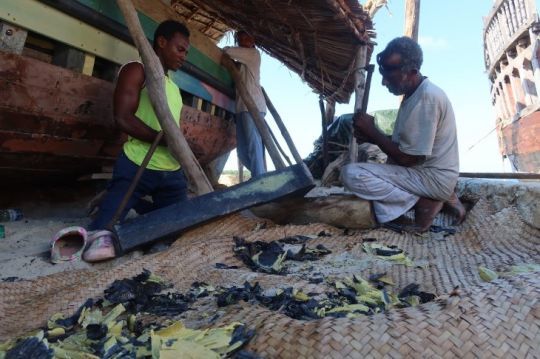
The organization continues to test techniques and further develop boatbuilding skills on other types of models.
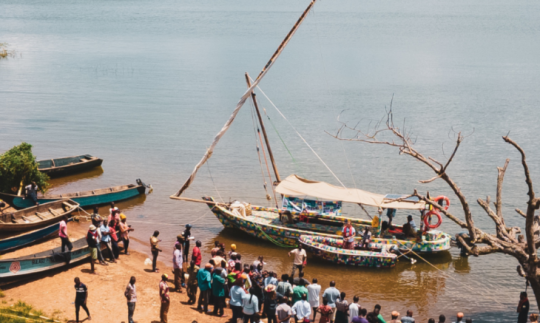
The first Flipflopi dhow will continue to sail around East Africa. The 24-meter dhow, meanwhile, will shortly enter construction and set sail for a round-the-world voyage to continue to generate interest, and so that this type of colorful construction can become an inspiring example for every yachtsman dreaming of sailing in a less polluted environment.
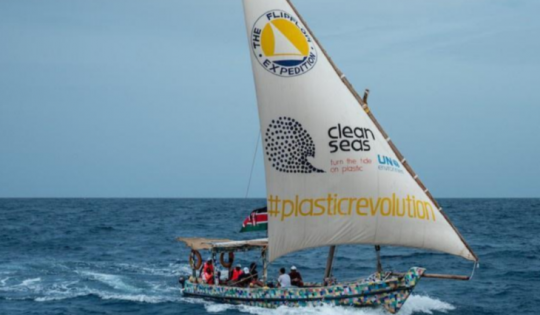

 /
/ 